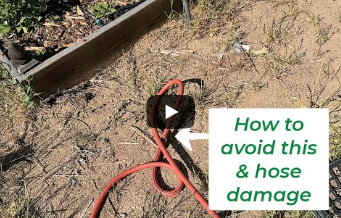What Material Should I Use?
This is the second post in a series on raised bed gardens (First post here: Benefits of Raised Garden Beds). The best thing about raised beds is that you can use just about anything for walls. So how do you build garden box walls? Here is a list of the typical materials you can use.
Wood: The Typical Raised Bed
Creating a wooden raised bed is quite simple, and can range from a few hour project, to one that takes up the whole weekend. You can use just about any type of wood, but ones that naturally prevent rotting are the best choices. Redwood and cedar will provide the most longevity, and turn that beautiful color grey as they age. Avoid pressure treated wood, as the chemicals can leach into the contained soil. How long will wood raised beds last? Cedar and redwood will last 10 – 20 years, other wood types like pine or douglas fir, about 3 – 5 years. 12″ planks are best for the walls, but if you have some carpentry skills, 2-3 feet can provide a convenient gardening experience.
Stone: Raised Bed For the Ages
Stone walls for raised beds have been used for centuries, and endure the test of time. You can use just about any stone, and just stack them or use mortar to make them a bit more permanent. Even if you don’t use mortar, dirt will typically fill the cracks over time for a nice aesthetic.
Concrete: Quick Beds
Concrete blocks can provide a quick and easy road to building a raised garden. You can use traditional square blocks and just stack them, mortar them, or use the manufactured blocks that are so popular at the big home stores. The manufactured blocks are nice as they have grooves to interlock so they don’t fall over. (Home Depot Stackers for Raised Beds)
Metal: The New Raised Bed
Corrugated roofing metal is a new trend in raised beds and if used correctly, it looks quite nice. Combined with a wood top rail, it can provide a nice look and be quite functional. Galvanized metal is rust resistant and will last a long time. You can get the roofing material from any big home store, and its relatively cheap. You just need the means to cut it, and fasten ends.
More on the construction of raised beds in my next post.










